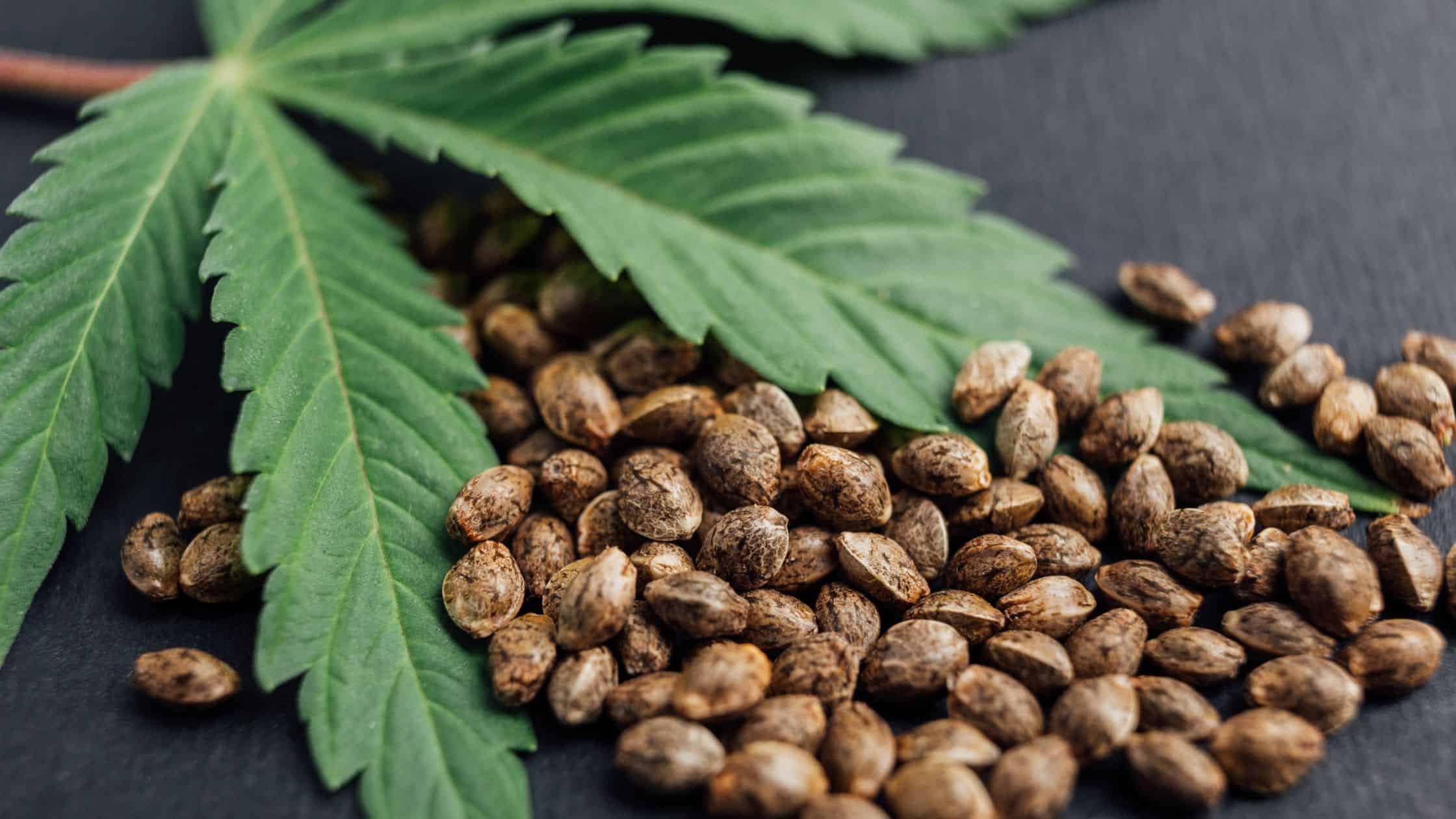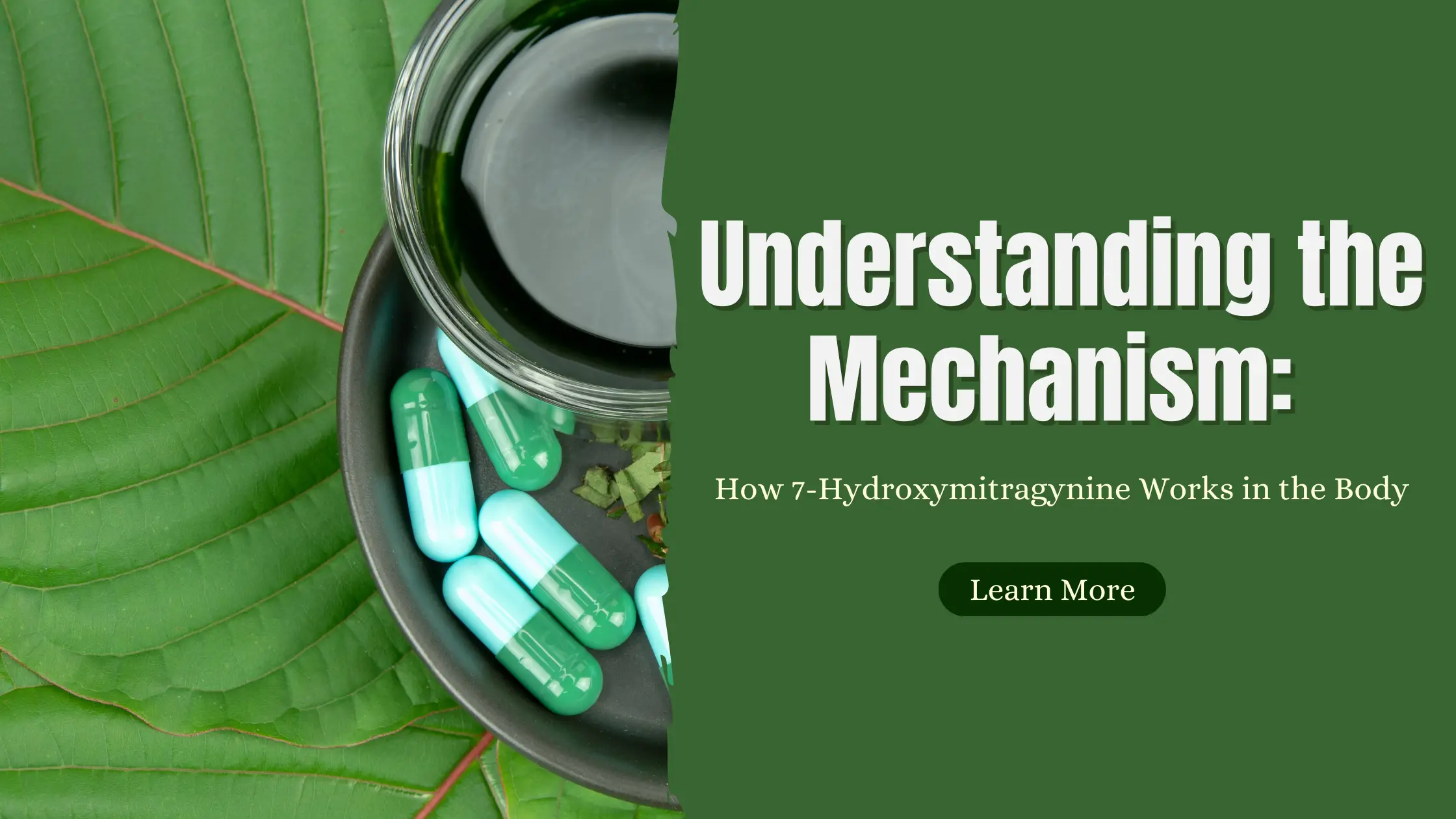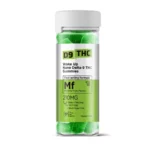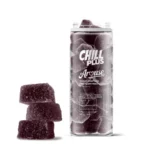Cannabis can offer relaxation, euphoria, and various other positive effects when used in moderation. However, sometimes consuming too much THC, the psychoactive component in cannabis, can lead to an unpleasant experience known as greening out. It’s a term many cannabis users have heard, but what exactly does it mean, and how can you deal with it?
In this blog, we’ll cover what happens when you green out, the symptoms, causes, and what to do if you find yourself or a friend in this uncomfortable situation.
What is Greening Out?
Greening out is a term used to describe an adverse reaction to overconsuming cannabis, specifically THC. When someone greens out, they experience a variety of uncomfortable symptoms, both physical and psychological. These symptoms can range from nausea and dizziness to paranoia and panic. While greening out can feel overwhelming, it’s not life-threatening and usually resolves on its own.
Symptoms of Greening Out
When you green out, the body reacts to an overload of THC. Common symptoms include:
- Nausea and Vomiting: Cannabis in large amounts can upset the stomach, leading to nausea, and in severe cases, vomiting.
- Dizziness and Lightheadedness: A spinning sensation, similar to vertigo, is common, making it hard to maintain balance.
- Anxiety and Paranoia: The person may feel intense anxiety, racing thoughts, or panic attacks, making the experience particularly uncomfortable.
- Rapid Heart Rate: Greening out often comes with a pounding or racing heart, which can contribute to the feeling of anxiety or fear.
- Confusion or Disorientation: The user might struggle to stay grounded or focused, often feeling disconnected from reality.
- Excessive Sweating or Chills: Some people experience sweating or sudden temperature changes, alternating between feeling hot and cold.
- Fatigue and Drowsiness: After the initial panic, many people feel extremely tired and drowsy, wanting to sleep off the effects.
- Difficulty Moving or Loss of Coordination: Motor skills can be affected, making it hard to walk straight or perform simple tasks.
Causes of Greening Out
Greening out typically happens when a person consumes more THC than their body can handle, but several factors can contribute to this experience:
- Overconsumption of THC: The most common reason for greening out is simply ingesting too much cannabis, either through smoking, vaping, or edibles.
- Low Tolerance: Individuals who are new to cannabis or who use it infrequently are more likely to green out because their bodies aren’t used to processing THC.
- Mixing Cannabis and Alcohol: Combining alcohol with cannabis can intensify the effects of both substances, increasing the likelihood of greening out.
- Edibles: Edibles can be particularly problematic because they take longer to kick in, leading some users to consume more before the effects set in. When the high does hit, it can be more intense and last longer than anticipated.
- Dehydration or Empty Stomach: Consuming cannabis when you’re dehydrated or haven’t eaten can make the effects feel stronger and last longer, raising the risk of greening out.
How Long Does Greening Out Last?
How long greening out lasts depends on several factors, including the amount of THC consumed, the method of consumption, and the individual’s tolerance. When cannabis is smoked or vaped, the effects generally last 1-3 hours. However, greening out from edibles can last much longer—anywhere from 4 to 8 hours, and in extreme cases, even longer.
How to Handle Greening Out
While greening out can be an uncomfortable experience, there are a few things you can do to help alleviate the symptoms and recover more quickly. Here’s what to try if you or someone you know greens out:
1. Stay Calm
Greening out can be intense, but the discomfort is temporary and will pass. Reassuring yourself that it isn’t life-threatening can make a huge difference. Take deep breaths, focus on positive thoughts, or try repeating a calming mantra. If you’re with someone who’s greening out, your calm presence and reassurance will help reduce their anxiety, which can be particularly valuable if they’re experiencing paranoia.
2. Sit or Lie Down
A quiet, comfortable space can be very grounding. Sit or lie down somewhere safe, like a couch or bed, where you’re less likely to feel dizzy or lose your balance. Resting your head can help if you feel disoriented, and staying still can also reduce any physical discomfort, allowing your mind and body to relax.
3. Hydrate
Sipping water is one of the most effective ways to feel better, as dehydration can worsen nausea and fatigue. Take slow, small sips of water, especially if you’re feeling nauseous. Avoid energy drinks or anything with caffeine, as they might worsen your symptoms or make you feel jittery. Electrolyte drinks or herbal teas can be soothing alternatives if plain water doesn’t appeal to you.
4. Eat a Snack
Eating can help your body process the THC more effectively, reducing the intensity of the high. Aim for light, easy-to-digest snacks, particularly those with carbohydrates or healthy fats, like toast, crackers, nuts, or fruit. Bananas, in particular, can help regulate blood sugar and provide potassium, which may ease symptoms if you’re feeling weak or queasy.
5. Take Deep Breaths
Focusing on your breathing can help you calm down and feel more in control. Find a simple breathing exercise, like inhaling deeply through your nose for four seconds, holding for a moment, then exhaling slowly for another four seconds. This technique not only helps regulate your heart rate but also has a grounding effect, which is especially helpful if you’re experiencing a racing mind.
6. Rest and Wait it Out
Sometimes, engaging in a calming activity can divert your attention from the discomfort of greening out. Listen to soothing music, watch a lighthearted show, or try guided meditation. Doing something familiar and enjoyable can help ground you, keeping your mind off any uneasy thoughts or feelings.
7. CBD to Counter THC
Some users have reported that consuming CBD can counteract the psychoactive effects of THC. CBD is non-psychoactive and may help reduce feelings of anxiety or paranoia. If you have CBD oil or edibles on hand, it might be worth trying.
8. Get Some Fresh Air
If possible, step outside for a few moments. Fresh air can alleviate feelings of nausea and lightheadedness, helping you feel more alert. If going outdoors isn’t an option, simply opening a window or sitting in a well-ventilated room can make a difference in how quickly you feel better.
Preventing Greening Out in the Future
If you’ve experienced greening out before, or you want to avoid it altogether, here are a few tips to help you consume cannabis more safely:
- Start Low and Go Slow: Especially with edibles, always start with a low dose and wait at least an hour or two before considering consuming more.
- Know Your Limits: If you’re new to cannabis, stick with lower-THC strains or products and avoid mixing cannabis with alcohol.
- Stay Hydrated and Fed: Make sure you’re well-hydrated and have eaten before consuming cannabis to minimize the risk of greening out.
Greening out can be a frightening and uncomfortable experience, but it’s important to remember that it will pass, and there are steps you can take to feel better. Understanding your limits with cannabis and learning how your body responds to THC is crucial to avoiding these experiences in the future. Always approach cannabis use with caution, especially if you’re trying new products or methods of consumption.
FAQs
Can greening out cause permanent damage?
Greening out, which happens when someone consumes too much THC, is not life-threatening and does not result in long-term harm. It’s characterized by intense but temporary symptoms like dizziness, nausea, and anxiety. While uncomfortable, greening out is self-limiting, and there’s no evidence to suggest it causes lasting damage to your body or mind.
How long does greening out last?
For most individuals, greening out lasts a few hours. However, if THC edibles were consumed, the effects can persist for up to 8 hours or longer, depending on factors like individual tolerance and metabolism. Remember, although the experience may feel overwhelming, it is temporary.
What should I do if I green out?
If you green out, the key is to stay calm. Hydrate by drinking water or a non-caffeinated beverage and rest in a comfortable position until the effects pass. Engaging in calming activities, like listening to music or practicing deep breathing, can also help alleviate anxiety. With time, you will return to feeling normal.


















